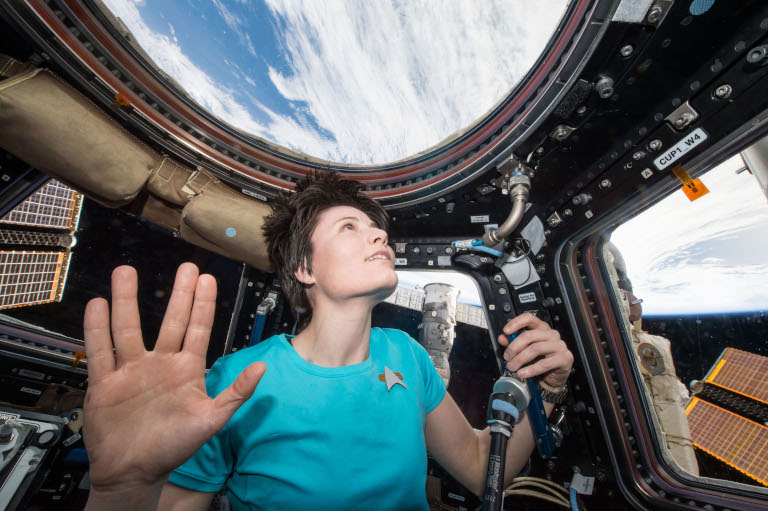This Earth Day, I find myself thinking about Star Trek. And not in a good way.
When I was a teenager and young adult I watched episodes of Gene Roddenberry’s classic original TV series multiple times—on original broadcast, reruns, and video rentals. I thought it was a little cheesy, but entertaining and, at its best, thought-provoking. However, even though I still appreciate its implicit messages about diversity and inclusivity and perhaps even the “Prime Directive,” I now also have some very different feelings about it.
Start Trek—along with a heap of other science fiction novels, movies, and comic books—promoted the idea that we humans are destined to colonize the rest of our solar system, then other star systems, the galaxy, and beyond. That was an understandable conclusion to draw, given two undeniable realities: the seemingly unstoppable force of European colonialism, and the more recent development of airplanes, rockets, satellites, and space exploration. It really didn’t take much imagination to guess that the trajectory of events would eventually propel humanity to life among the galaxies.
However, that turns out to be a bad guess. As physicist Tom Murphy has pointed out, living for an extended period anywhere other than Earth is just about impossible. You can get an inkling of some of the dangers, costs, and momentary practical difficulties by watching the 2013 movie Gravity.
When, in 2021, William Shatner (star of the original series) made a real trip to space aboard Jeff Bezos’s Blue Origin rocket, he expected to achieve an “ultimate catharsis.” Instead, he was filled with an “overwhelming sadness” and a newfound appreciation for the beauty of Earth. He later wrote, “I love the mystery of the universe. I love all the questions that have come to us over thousands of years of exploration and hypotheses … but when I looked in the opposite direction, into space, there was no mystery, no majestic awe to behold … all I saw was death.”
Nevertheless, Star Trek became a durable quasi-religion. Not only did it attract devoted followers (“Trekkies”), but it shaped the zeitgeist of two or three generations. And it has had real-world consequences, including the fact-defying (though well-funded) Mars-colonizing ambitions of Elon Musk. The World Economic Forum, in a new report, suggests that space holds a mouth-watering $1.8 trillion worth of opportunity for economic growth—surely incentive enough for lots of new voyages to the final frontier.
But all religions have their dark sides, and Star Trek mania is no different in this regard.
Some opponents of environmentalism are Bible-thumpers who believe that God gave Earth to humans to use up, and that resource depletion and pollution won’t be problems because Jesus will return soon and all the good people will be taken up into heaven. After that, who the hell cares what happens to the planet? To some of its acolytes, Star Trek offered a trendier and ostensibly more secular version of essentially the same line of thought: our destiny is among the stars, so don’t get too worked up about the costs of progress.
Both those anti-ecological lines of thinking are not just wrong, but profoundly, existentially misleading.
Earth is it. It’s not just where we’re from, it’s where we belong, and it’s the only home we will ever know. If we don’t take care of it, we will cease to exist.
And why shouldn’t we want to care for our planet? Earth is miraculous and beautiful. It nourishes us physically, emotionally, and spiritually. If there is any religion that makes sense, it’s the old-time religion of pantheistic Earth-worship.
This Earth Day, let’s have a revival—a celebration of our true and only planetary home.






